
Chemistry
9th Edition
ISBN: 9781133611097
Author: Steven S. Zumdahl
Publisher: Cengage Learning
expand_more
expand_more
format_list_bulleted
Concept explainers
Textbook Question
Chapter 8, Problem 39E
State whether or not each of the following has a permanent dipole moment.
- a.
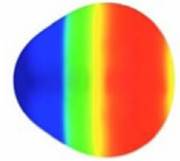
- b.
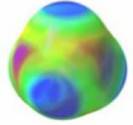
- c.
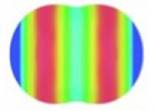
- d.
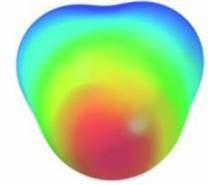
- e.
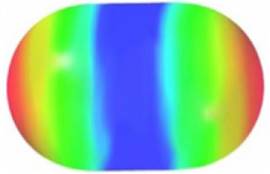
- f.
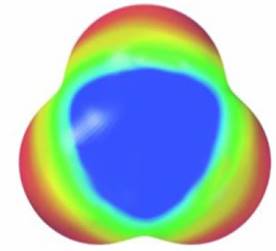
Expert Solution & Answer
Trending nowThis is a popular solution!

Students have asked these similar questions
Complete the reaction in the drawing area below by adding the major products to the right-hand side.
If there won't be any products, because nothing will happen under these reaction conditions, check the box under the drawing area instead.
Note: if the products contain one or more pairs of enantiomers, don't worry about drawing each enantiomer with dash and wedge bonds. Just draw one molecule
to represent each pair of enantiomers, using line bonds at the chiral center.
More...
No reaction.
my
ㄖˋ
+
1. Na O Me
Click and drag to start
drawing a structure.
2. H
+
Predict the intermediate 1 and final product 2 of this organic reaction:
NaOMe
H+
+
1
2
H
H
work up
You can draw 1 and 2 in any arrangement you like.
Note: if either 1 or 2 consists of a pair of enantiomers, just draw one structure using line bonds instead of 3D (dash and wedge) bonds at the chiral center.
Click and drag to start drawing a structure.
X
$
dm
Predict the major products of this organic reaction:
1. NaH (20°C)
2. CH3Br
?
Some notes:
• Draw only the major product, or products. You can draw them in any arrangement you like.
• Be sure to use wedge and dash bonds where necessary, for example to distinguish between major products that are enantiomers.
• If there are no products, just check the box under the drawing area.
No reaction.
Click and drag to start drawing a structure.
G
Cr
Chapter 8 Solutions
Chemistry
Ch. 8 - Distinguish between the terms electronegativity...Ch. 8 - When an element forms an anion, what happens to...Ch. 8 - Define the term lattice energy. Why,...Ch. 8 - Explain how bond energies can be used to estimate...Ch. 8 - Prob. 5RQCh. 8 - Explain the terms resonance and delocalized...Ch. 8 - Define formal charge and explain how to calculate...Ch. 8 - Give two requirements that should be satisfied for...Ch. 8 - Consider the following compounds: CO2, SO2, KrF2,...Ch. 8 - Explain the electronegativity trends across a row...
Ch. 8 - The ionic compound AB is formed. The charges on...Ch. 8 - Prob. 3ALQCh. 8 - The bond energy for a CH bond is about 413 kJ/mol...Ch. 8 - Prob. 5ALQCh. 8 - Which has the greater bond lengths: NO2 or NO3?...Ch. 8 - The following ions are best described with...Ch. 8 - The second electron affinity values for both...Ch. 8 - What is meant by a chemical bond? Why do atoms...Ch. 8 - Why are some bonds ionic and some covalent?Ch. 8 - How does a bond between Na and Cl differ from a...Ch. 8 - Arrange the following molecules from most to least...Ch. 8 - Does a Lewis structure tell which electron come...Ch. 8 - Describe the type of bonding that exists in die...Ch. 8 - Some plant fertilizer compounds are (NH4)2SO4,...Ch. 8 - Some of the important properties of ionic...Ch. 8 - What is the electronegativity trend? Where does...Ch. 8 - Give one example of a compound having a linear...Ch. 8 - When comparing the size of different ions, the...Ch. 8 - In general the higher the charge on the ions in an...Ch. 8 - Combustion reactions of fossil fuels provide most...Ch. 8 - Which of the following statements is/are true?...Ch. 8 - Three resonance structures can be drawn for CO2....Ch. 8 - Which of the following statements is(are) true?...Ch. 8 - Without using Fig. 3-4, predict the order of...Ch. 8 - Without using Fig. 3-4, predict the order of...Ch. 8 - Without using Fig. 3-4, predict which bond in each...Ch. 8 - Without using Fig. 3-4, predict which bond in each...Ch. 8 - Prob. 31ECh. 8 - Prob. 32ECh. 8 - Which of the following incorrectly shows the bond...Ch. 8 - Indicate the bond polarity (show the partial...Ch. 8 - Predict the type of bond (ionic, covalent, or...Ch. 8 - List all the possible bonds that can occur between...Ch. 8 - Hydrogen has an electronegativity value between...Ch. 8 - Rank the following bonds in order of increasing...Ch. 8 - State whether or not each of the following has a...Ch. 8 - The following electrostatic potential diagrams...Ch. 8 - Prob. 41ECh. 8 - Prob. 42ECh. 8 - Predict the empirical formulas of the ionic...Ch. 8 - Predict the empirical formulas of the ionic...Ch. 8 - Write electron configurations for a. the cations...Ch. 8 - Write electron configurations for a. the cations...Ch. 8 - Which of the following ions have noble gas...Ch. 8 - What noble gas has the same electron configuration...Ch. 8 - Give the formula of a negative ion that would have...Ch. 8 - Prob. 50ECh. 8 - Give three ions that are isoelectronic with neon....Ch. 8 - Consider the ions Sc3+, Cl, K+, Ca2+, and S2....Ch. 8 - Prob. 53ECh. 8 - For each of the following groups, place the atoms...Ch. 8 - Which compound in each of the following pairs of...Ch. 8 - Which compound in each of the following pairs of...Ch. 8 - Use the following data for potassium chloride to...Ch. 8 - Use the following data for magnesium fluoride to...Ch. 8 - Consider the following energy changes: E(kJ/mol)...Ch. 8 - Compare the electron affinity of fluorine to the...Ch. 8 - Prob. 61ECh. 8 - Use the following data (in kJ/mol) to estimate E...Ch. 8 - Rationalize the following lattice energy values:...Ch. 8 - The lattice energies of FeCl3, FeCl2, and Fe2O3...Ch. 8 - Use bond energy values (Table 3-3) to estimate E...Ch. 8 - Use bond energy values (Table 3-3) to estimate E...Ch. 8 - Prob. 67ECh. 8 - Acetic acid is responsible for the sour taste of...Ch. 8 - Use bond energies to predict E for the following...Ch. 8 - The major industrial source of hydrogen gas is by...Ch. 8 - Use bond energies to estimate E for the combustion...Ch. 8 - Prob. 72ECh. 8 - Prob. 73ECh. 8 - Consider the following reaction: A2+B22AB E =...Ch. 8 - Compare your answers from parts a and b of...Ch. 8 - Compare your answers from Exercise 72 to the H...Ch. 8 - The standard enthalpies of formation for S(g),...Ch. 8 - Use the following standard enthalpies of formation...Ch. 8 - The standard enthalpy of formation for N2H2(g) is...Ch. 8 - The standard enthalpy of formation for NO(g) is...Ch. 8 - Write Lewis structures that obey the octet rule...Ch. 8 - Write Lewis structures that obey the octet rule...Ch. 8 - Write Lewis structures that obey the octet rule...Ch. 8 - Write Lewis structures that obey the octet rule...Ch. 8 - One type of exception to the octet rule are...Ch. 8 - Lewis structures can be used to understand why...Ch. 8 - The most common exceptions to the octet rule are...Ch. 8 - Prob. 88ECh. 8 - Write Lewis structures for the following. Show all...Ch. 8 - Prob. 90ECh. 8 - Benzene (C6H6) consists of a six-membered ring of...Ch. 8 - Borazine (B3N3H6) has often been called inorganic...Ch. 8 - An important observation supporting the concept of...Ch. 8 - Consider the following bond lengths: CO143pmC9O123...Ch. 8 - A toxic cloud covered Bhopal, India, in December...Ch. 8 - Peroxyacetyl nitrate, or PAN, is present in...Ch. 8 - Prob. 99ECh. 8 - Use formal charge arguments to explain why CO has...Ch. 8 - Write Lewis structures that obey the octet rule...Ch. 8 - Write Lewis structures for the species in Exercise...Ch. 8 - Oxidation of the cyanide ion produces the stable...Ch. 8 - When molten sulfur reacts with chlorine gas, a...Ch. 8 - Prob. 106ECh. 8 - Prob. 108ECh. 8 - Predict the molecular structure and bond angles...Ch. 8 - Predict die molecular structure and bond angles...Ch. 8 - There are several molecular structures based on...Ch. 8 - Two variations of the octahedral geometry (see...Ch. 8 - Predict the molecular structure (including bond...Ch. 8 - Predict the molecular structure (including bond...Ch. 8 - Predict the molecular structure (including bond...Ch. 8 - Predict the molecular structure (including bond...Ch. 8 - Prob. 117ECh. 8 - Which of the molecules in Exercise 120 have net...Ch. 8 - Which of the molecules in Exercise 121 have net...Ch. 8 - Which of the molecules in Exercise 122 have net...Ch. 8 - Write Lewis structures and predict the molecular...Ch. 8 - Write Lewis structures and predict whether each of...Ch. 8 - Consider the following Lewis structure where E is...Ch. 8 - Consider the following Lewis structure where E is...Ch. 8 - Prob. 125ECh. 8 - Two different compounds have the formula XeF2Cl2....Ch. 8 - Arrange the following in order of increasing...Ch. 8 - For each of the following, write an equation that...Ch. 8 - Use bond energies (table 3-3), values of electron...Ch. 8 - Write Lewis structures for CO32, HCO3, and H2CO3....Ch. 8 - Which member of the following pairs would you...Ch. 8 - What do each of the following sets of...Ch. 8 - Prob. 133AECh. 8 - Although both Br3 and I3 ions are known, the F3...Ch. 8 - Which of the following molecules have not dipole...Ch. 8 - Prob. 137AECh. 8 - Look up the energies for the bonds in CO and N2....Ch. 8 - Classify the bonding in each of the following...Ch. 8 - List the bonds PCl, PF, OF, and SiF from least...Ch. 8 - Arrange the atoms and/or ions in the following...Ch. 8 - Use the following data to estimate E for the...Ch. 8 - Use bond energy values to estimate E for the...Ch. 8 - Which of the following compounds or ions exhibit...Ch. 8 - The formulas of several chemical substances are...Ch. 8 - Predict the molecular structure, bond angles, and...Ch. 8 - Use Coulombs Jaw, V=Q1Q240r=2.311019Jnm(Q1Q2r) to...Ch. 8 - Prob. 148CPCh. 8 - Calculate the standard heat of formation of the...Ch. 8 - Given the following information: Energy of...Ch. 8 - Prob. 151CPCh. 8 - Think of forming an ionic compound as three steps...Ch. 8 - The compound NF3 is quite stable, but NCl3, is...Ch. 8 - Three processes that have been used for the...Ch. 8 - The compound hexaazaisowurtzitane is one of the...Ch. 8 - Many times extra stability is characteristic of a...Ch. 8 - The study of carbon-containing compounds and their...Ch. 8 - Draw a Lewis structure for the N,...Ch. 8 - Prob. 159CPCh. 8 - Consider the following computer-generated model of...Ch. 8 - A compound, XF5, is 42.81% fluorine by mass....Ch. 8 - Identify the following elements based on their...
Knowledge Booster
Learn more about
Need a deep-dive on the concept behind this application? Look no further. Learn more about this topic, chemistry and related others by exploring similar questions and additional content below.Similar questions
- Predict the major products of this organic reaction: 1. LDA (-78°C) ? 2. Br Some notes: • Draw only the major product, or products. You can draw them in any arrangement you like. . • Be sure to use wedge and dash bonds where necessary, for example to distinguish between major products that are enantiomers. • If there are no products, just check the box under the drawing area. No reaction. Click and drag to start drawing a structure. Xarrow_forwardPlease draw the structuresarrow_forwardDraw the missing intermediates 1 and 2, plus the final product 3, of this synthesis: 0 1. Eto 1. Eto- 1 2 2. MeBr 2. EtBr H3O+ A 3 You can draw the three structures in any arrangement you like. Explanation Check Click and drag to start drawing a structure.arrow_forward
- Draw the missing intermediate 1 and final product 2 of this synthesis: 1. MeO- H3O+ 1 2 2. PrBr Δ You can draw the two structures in any arrangement you like. Click and drag to start drawing a structure.arrow_forwardWhat is the differences between: Glyceride and phosphoglyceride Wax and Fat Soap and Fatty acid HDL and LDL cholesterol Phospho lipids and sphingosine What are the types of lipids? What are the main lipid components of membrane structures? How could lipids play important rules as signaling molecules and building units? The structure variety of lipids makes them to play significant rules in our body, conclude breifly on this statement.arrow_forwardWhat is the differences between DNA and RNA for the following: - structure - function - type What is the meaning of: - replication - transcription - translation show the base pair connection(hydrogen bond) in DNA and RNAarrow_forward
- What is the IP for a amino acid- give an example what are the types of amino acids What are the structures of proteins The N-Terminal analysis by the Edman method shows saralasin contains sarcosine at the N-terminus. Partial hydrolysis of saralasin with dilute hydrochloric acid yields the following fragments: Try-Val-His Sar-Arg-Val His-Pro-Ala Val- Tyr- Val Arg-Val-Tyr What is the structure of saralasin?arrow_forwardWhat is the IP for a amino acid- give an example what are the types of amino acids What are the structures of proteins The N-Terminal analysis by the Edman method shows saralasin contains sarcosine at the N-terminus. Partial hydrolysis of saralasin with dilute hydrochloric acid yields the following fragments: Try-Val-His Sar-Arg-Val His-Pro-Ala Val- Tyr- Val Arg-Val-Tyr What is the structure of saralasin?arrow_forward> aw the missing intermediates 1 and 2, plus the final product 3, of this synthesis: 1. Eto 1. EtO¯ H3O+ 1 2 2. PrBr 2. PrBr Δ You can draw the three structures in any arrangement you like. 3 Click and drag to start drawing a structure. Explanation Check 2025 McGraw Hill LLC. All Rights Reserved. Terms of Use Privacarrow_forward
- There are various factors that affect an equilibrium. Give 3 of these factors and explain using examples andequations how an equilibrium is affected by these factors. Please remember that this is a communication question so that you are communicating your understanding of the factors that affect and equilibrium.arrow_forwardEEZE LETCHUP ID Draw the most likely conjugate base resulting from this acid-base reaction. Include all lone pairs. Ignore inorganic byproducts. Drawing く NaOCH2CH3 :0: :0: 狗arrow_forwardAnswerarrow_forward
arrow_back_ios
SEE MORE QUESTIONS
arrow_forward_ios
Recommended textbooks for you
 World of Chemistry, 3rd editionChemistryISBN:9781133109655Author:Steven S. Zumdahl, Susan L. Zumdahl, Donald J. DeCostePublisher:Brooks / Cole / Cengage Learning
World of Chemistry, 3rd editionChemistryISBN:9781133109655Author:Steven S. Zumdahl, Susan L. Zumdahl, Donald J. DeCostePublisher:Brooks / Cole / Cengage Learning Introductory Chemistry: A FoundationChemistryISBN:9781337399425Author:Steven S. Zumdahl, Donald J. DeCostePublisher:Cengage Learning
Introductory Chemistry: A FoundationChemistryISBN:9781337399425Author:Steven S. Zumdahl, Donald J. DeCostePublisher:Cengage Learning
 ChemistryChemistryISBN:9781305957404Author:Steven S. Zumdahl, Susan A. Zumdahl, Donald J. DeCostePublisher:Cengage Learning
ChemistryChemistryISBN:9781305957404Author:Steven S. Zumdahl, Susan A. Zumdahl, Donald J. DeCostePublisher:Cengage Learning Chemistry by OpenStax (2015-05-04)ChemistryISBN:9781938168390Author:Klaus Theopold, Richard H Langley, Paul Flowers, William R. Robinson, Mark BlaserPublisher:OpenStax
Chemistry by OpenStax (2015-05-04)ChemistryISBN:9781938168390Author:Klaus Theopold, Richard H Langley, Paul Flowers, William R. Robinson, Mark BlaserPublisher:OpenStax Organic Chemistry: A Guided InquiryChemistryISBN:9780618974122Author:Andrei StraumanisPublisher:Cengage Learning
Organic Chemistry: A Guided InquiryChemistryISBN:9780618974122Author:Andrei StraumanisPublisher:Cengage Learning

World of Chemistry, 3rd edition
Chemistry
ISBN:9781133109655
Author:Steven S. Zumdahl, Susan L. Zumdahl, Donald J. DeCoste
Publisher:Brooks / Cole / Cengage Learning

Introductory Chemistry: A Foundation
Chemistry
ISBN:9781337399425
Author:Steven S. Zumdahl, Donald J. DeCoste
Publisher:Cengage Learning


Chemistry
Chemistry
ISBN:9781305957404
Author:Steven S. Zumdahl, Susan A. Zumdahl, Donald J. DeCoste
Publisher:Cengage Learning

Chemistry by OpenStax (2015-05-04)
Chemistry
ISBN:9781938168390
Author:Klaus Theopold, Richard H Langley, Paul Flowers, William R. Robinson, Mark Blaser
Publisher:OpenStax

Organic Chemistry: A Guided Inquiry
Chemistry
ISBN:9780618974122
Author:Andrei Straumanis
Publisher:Cengage Learning
Stoichiometry - Chemistry for Massive Creatures: Crash Course Chemistry #6; Author: Crash Course;https://www.youtube.com/watch?v=UL1jmJaUkaQ;License: Standard YouTube License, CC-BY
Bonding (Ionic, Covalent & Metallic) - GCSE Chemistry; Author: Science Shorts;https://www.youtube.com/watch?v=p9MA6Od-zBA;License: Standard YouTube License, CC-BY
General Chemistry 1A. Lecture 12. Two Theories of Bonding.; Author: UCI Open;https://www.youtube.com/watch?v=dLTlL9Z1bh0;License: CC-BY